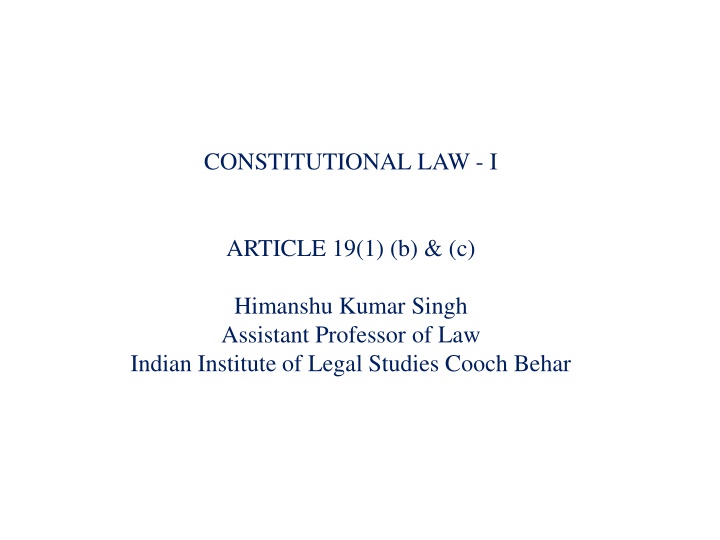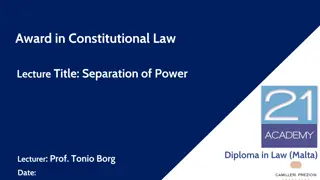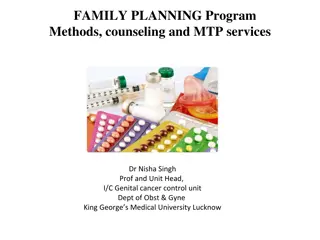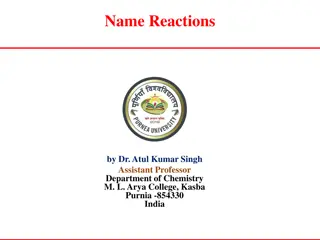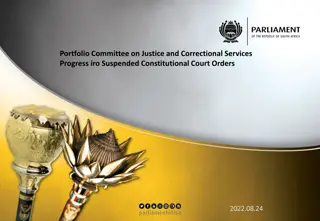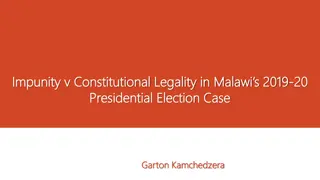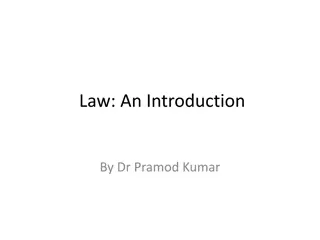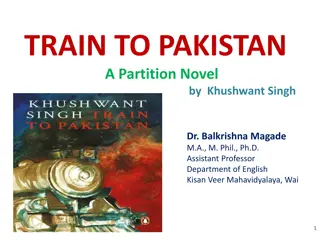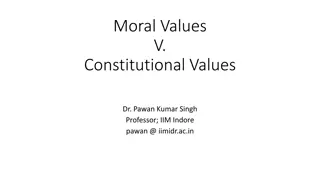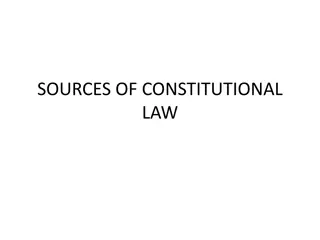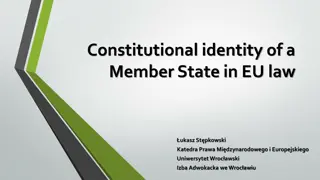Constitutional Law - Article 19(1)(d) & (e) Overview by Himanshu Kumar Singh
Article 19(1)(d) guarantees the right to move freely throughout India, while 19(1)(e) ensures the right to reside and settle in any part of India. These rights can be subject to reasonable restrictions for public interest or the protection of Scheduled Tribes. Various court cases have established the parameters of these rights and limitations, emphasizing national integrity and public safety.
Download Presentation

Please find below an Image/Link to download the presentation.
The content on the website is provided AS IS for your information and personal use only. It may not be sold, licensed, or shared on other websites without obtaining consent from the author.If you encounter any issues during the download, it is possible that the publisher has removed the file from their server.
You are allowed to download the files provided on this website for personal or commercial use, subject to the condition that they are used lawfully. All files are the property of their respective owners.
The content on the website is provided AS IS for your information and personal use only. It may not be sold, licensed, or shared on other websites without obtaining consent from the author.
E N D
Presentation Transcript
CONSTITUTIONAL LAW - I ARTICLE 19(1) (b) & (c) Himanshu Kumar Singh Assistant Professor of Law Indian Institute of Legal Studies Cooch Behar
ARTICLE 19 Protection of certain rights regarding freedom of speech, etc. (1) All citizens shall have the right (d) to move freely throughout the territory of India; (e) to reside and settle in any part of the territory of India; (5) Nothing in sub-clauses (d) and (e) of the said clause shall affect the operation of any existing law in so far as it imposes, or prevent the State from making any law imposing, reasonable restrictions on the exercise of any of the rights conferred by the said sub-clauses either in the interests of the general public or for the protection of the interests of any Scheduled Tribe. Article 19 (1) (d) guarantees to all citizens the right to move freely throughout the territory of India. Article 19 (1) (e) guarantees the right to reside and settle in any part of India. The right may be subjected to reasonable restrictions under Article 19 (5) a. In the interest of general public b. For the protection of the interest of any Scheduled Tribe.
ARTICLE 19 Protection of certain rights regarding freedom of speech, etc. The object behind Article 19 (1) (d) & (e) is national integrity, better understanding, and developing the feeling of OneIndia . The right to movement and residence go together in most of the cases and as such are simultaneously affected. The same principles are followed in the matter of restrictions on any of the two rights. State of Madhya Pradesh v Baldeo Prasad, 1961, S.C., it was held that any law providing for externment of any dangerous person cannot be said to be reasonable if it does not define dangerous person. It would be arbitrary to empower the executive or administrative authorities to determine as to who is a dangerous person. State of U.P. v Kaushalya, 1964, S.C., it was held that public health and public morality are part of public health. Therefore, free movement of a prostitute may be restricted. Such a restriction would be covered under Article 19 (5). Ajay Canu v Union of India, 1988, S.C., it was held that the impugned Rule made under Andhra Pradesh Motor Vehicles Act 1963 which makes waring of helmet by two wheeler riders mandatory while driving, does not infringe freedom of movement under Article 19 (1) (d). The Rule would amount to reasonable restriction and hence is constitutionally valid.
ARTICLE 19 S Rajaseekaran v Union of India, 2014, S.C., it was held that there should be no exemption for wearing helmets (such as the exemptions in favour of women in some States). Seatbelts should be compulsory for driver and front-seat passenger. On national highways, seatbelts should be compulsory for back-seat passengers, too. Hasan Ali Raihani v Union of India, 2006, S.C., it was held that in case the valid permit of a person who entered India, was cancelled, the competent authority must inform him of the reasons of his deportation so as to enable him to make effective representation; and only after considering the representation, the competent authority may pass an appropriate order. Further, an Indian citizen can t be expelled from the country on any ground whatsoever, except in accordance with Article 11 of the Constitution. State of M.P. v Bharat Singh, 1967, S.C., it was held that a person may be directed to leave a particular place and to reside at a given place. However, before fixing a place for a citizen to reside, opportunity of hearing must be given. The following factors must be taken into consideration:
ARTICLE 19 a. Residential facilities at the place fixed. b. Means of livelihood available at the place fixed. c. Health facilities and fulfilment of other needs. State of Arunachal Pradesh v Khudiram Chakma, 1994, S.C., it was held that Article 19 (1) (d) and (e) are unavailable to foreigner nationals because these rights are conferred only on the citizens. The machinery of Article 14 also cannot be invoked by foreign nationals. Rights under Articles 19(1) (d) and (e) are expressly withheld to foreigner nationals. Johnny Paul Pierce v Union of India, 2020, Ker., it was held that a foreign national cannot claim the protection of Article 19(1)(e) of the Constitution of India i.e., a foreign national does not have the fundamental right to reside and settle in India.
